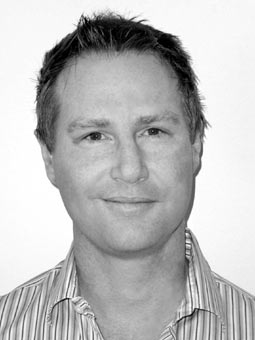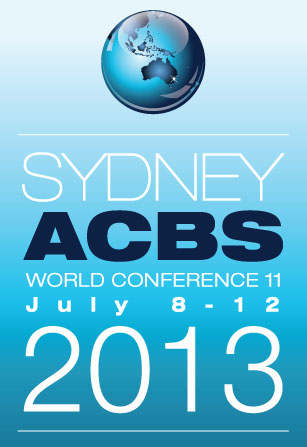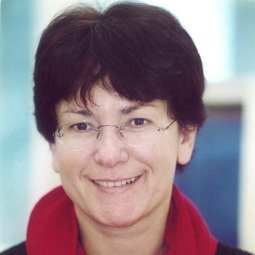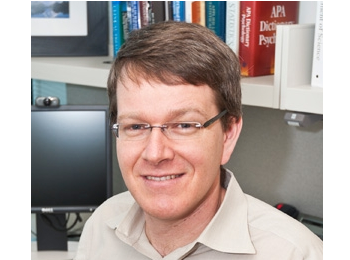

Darin Cairns has over 15 years experience in treating children, adults and families for a range of psychological disorders. He has specialised in emotional, neurological and developmental disorders. Clinically, Darin has expertise in child, adolescent, family therapy and developmental disorders such as autism spectrum disorders. He also has extensive experience in adult mood disorders and works as a single expert witness.
Darin is well known for his work with children, adolescents and adults with autism spectrum disorders (ASD). Darin has set up award winning early intervention services in Western Australia for children with ASD and related conditions. He was initially trained in Applied Behaviour Analysis (ABA), Clinical Behaviour Analysis and Functional Analytic Psychotherapy. After many years working with developmental specialists and clinicians his frustration at not being able to bridge the gap from ABA to complex behavioural and emotional domains lead him to Relational Frame Theory (RFT). He has since applied Relational Frame Theory (RFT) to hundreds of developmental programs for children with autism spectrum disorders and special needs and continues to practice clinically using therapies developed from RFT such as Acceptance and Commitment Therapy (ACT) and other third wave Cognitive Behavioural Approaches.

Paul Gilbert, Ph.D.
Paul Gilbert is the head of the Mental Health Research Unit as well as Professor of Clinical Psychology at the University of Derby. He has a degree in Economics (Wolverhampton, 1973), Masters in Experimental Psychology (Sussex, 1975), PhD in Clinical Psychology (Edinburgh, 1980) and a diploma in Clinical Psychology awarded by the British Psychological Society (1980). He was made a fellow of the British Psychological Society for contributions to psychological knowledge in 1993, and was president of the British Association for Cognitive and Behavioural Psychotherapy in 2003. He has also served on the government depression NICE guideline committee. He has published and edited 21 books, over 100 academic papers and 39 book chapters. He is currently a series editor for a 'compassionate approaches to life difficulties' series. After years of exploring the processes underpinning shame and its role in a variety of psychopathologies, his current research is exploring the neurophysiology and therapeutic effectiveness of compassion focused therapy.
Steven C. Hayes, Ph.D.
Steven C. Hayes is Nevada Foundation Professor at the Department of Psychology at the University of Nevada. An author of 35 books and over 500 scientific articles, his career has focused on an analysis of the nature of human language and cognition and the application of this to the understanding and alleviation of human suffering. Dr. Hayes has been President of Division 25 of the APA, of the American Association of Applied and Preventive Psychology, the Association for Contextual Behavioral Science, and of the Association for Behavioral and Cognitive Therapies. He was the first Secretary-Treasurer of the Association for Psychological Science, which he helped form and has served a 5 year term on the National Advisory Council for Drug Abuse in the National Institutes of Health. In 1992 he was listed by the Institute for Scientific Information as the 30th “highest impact” psychologist in the world. His work has been recognized by several awards including the Exemplary Contributions to Basic Behavioral Research and Its Applications from Division 25 of APA, the Impact of Science on Application award from the Society for the Advancement of Behavior Analysis, and the Lifetime Achievement Award from the Association for Behavioral and Cognitive Therapies.
Eva Jablonka, Ph.D. has a Ph.D. in Genetics from the Hebrew University, Jerusalem, Israel. Her post-Doctoral studies were in the Philosophy of Science, and in Developmental Genetics. She is a professor in the Cohn Institute for the History and Philosophy of Science and Ideas, Tel-Aviv. Her main interest is the understanding of evolution, especially evolution that is driven by non-genetic hereditary variations, and in the evolutionary transition to phenomenal consciousness. The co-authored books listed below examine and discuss some of these issues.
has a Ph.D. in Genetics from the Hebrew University, Jerusalem, Israel. Her post-Doctoral studies were in the Philosophy of Science, and in Developmental Genetics. She is a professor in the Cohn Institute for the History and Philosophy of Science and Ideas, Tel-Aviv. Her main interest is the understanding of evolution, especially evolution that is driven by non-genetic hereditary variations, and in the evolutionary transition to phenomenal consciousness. The co-authored books listed below examine and discuss some of these issues.
Eva Jablonka and Marion J. Lamb (1995) Epigenetic Inheritance and Evolution – The Lamarckian Dimension. Oxford University Press; Avital E. and Jablonka E. (2000) Animal Traditions: Behavioural Inheritance in Evolution. Cambridge, Cambridge University Press; Eva Jablonka and Marion J. Lamb (2005) Evolution in Four Dimensions. Genetic Epigenetic, Behavioral and Symbolic Variation in the History of Life. MIT Press. Snait B. Gissis and Eva Jablonka (2011) Transformations of Lamarckism: from Subtle Fluids to Molecular Biology. MIT Press.
 Jonathan Bricker, Ph.D., is founder and leader of the Tobacco & Health Behavior Science Group in the Division of Public Health Sciences at the Fred Hutchinson Cancer Research Center. A licensed clinical psychologist, he is also an Associate Professor in the Department of Psychology at the University of Washington. His current research program focuses on comparing ACT with traditional CBT for smoking cessation in separate randomized trials of each of these delivery formats: (1) individual face-to-face, (2) group, (3) phone, (4) web, and now 5) smartphone. He and his team are the recipient of grants totaling 7 million US dollars, including a National Institutes of Health study to conduct arguably the largest randomized trial of ACT to date (5 years, 2500 participants). His team's most recent results are from a randomized trial showing that web-based ACT had over double the quit smoking rates as compared to the US government's program.
Jonathan Bricker, Ph.D., is founder and leader of the Tobacco & Health Behavior Science Group in the Division of Public Health Sciences at the Fred Hutchinson Cancer Research Center. A licensed clinical psychologist, he is also an Associate Professor in the Department of Psychology at the University of Washington. His current research program focuses on comparing ACT with traditional CBT for smoking cessation in separate randomized trials of each of these delivery formats: (1) individual face-to-face, (2) group, (3) phone, (4) web, and now 5) smartphone. He and his team are the recipient of grants totaling 7 million US dollars, including a National Institutes of Health study to conduct arguably the largest randomized trial of ACT to date (5 years, 2500 participants). His team's most recent results are from a randomized trial showing that web-based ACT had over double the quit smoking rates as compared to the US government's program.
 Anthony Biglan, Ph.D. is a Senior Scientist at Oregon Research Institute and the Co-Director of the Promise Neighborhood Research Consortium. He has been conducting research on the development and prevention of child and adolescent problem behavior for the past 30 years. His work has included studies of the risk and protective factors associated with tobacco, alcohol, and other drug use; high-risk sexual behavior; and antisocial behavior. He has conducted numerous experimental evaluations of interventions to prevent tobacco use both through school-based programs and community-wide interventions. And, he has evaluated interventions to prevent high-risk sexual behavior, antisocial behavior, and reading failure.
Anthony Biglan, Ph.D. is a Senior Scientist at Oregon Research Institute and the Co-Director of the Promise Neighborhood Research Consortium. He has been conducting research on the development and prevention of child and adolescent problem behavior for the past 30 years. His work has included studies of the risk and protective factors associated with tobacco, alcohol, and other drug use; high-risk sexual behavior; and antisocial behavior. He has conducted numerous experimental evaluations of interventions to prevent tobacco use both through school-based programs and community-wide interventions. And, he has evaluated interventions to prevent high-risk sexual behavior, antisocial behavior, and reading failure.
In recent years, his work has shifted to more comprehensive interventions that have the potential to prevent the entire range of child and adolescent problems. He and colleagues at the Center for Advanced Study in the Behavioral Sciences published a book summarizing the epidemiology, cost, etiology, prevention, and treatment of youth with multiple problems (Biglan et al., 2004). He is a former president of the Society for Prevention Research. He was a member of the Institute of Medicine Committee on Prevention, which recently released its report documenting numerous evidence-based preventive interventions that can prevent multiple problems. As a member of Oregon’s Alcohol and Drug Policy Commission, he has helped to develop a strategic plan for implementing comprehensive evidence-based interventions throughout Oregon.
Thomas J. Dishion - Dr. Dishion is no longer able to attend.
